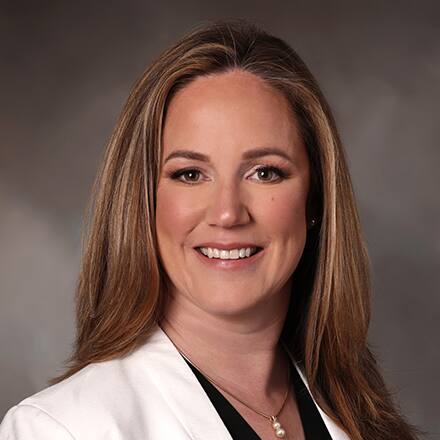MEd in Secondary Education New England campus experience

Expert instruction
Career-relevant curriculum
Academic and career support
Program Overview Why get a secondary education degree on campus?
Teach for impact with a Master of Education (MEd) in Secondary Education from Southern New Hampshire University. In this 36-credit, 12-month clinical master's in education program, you'll build skills needed to teach English, mathematics, science and social studies. Plus, you’ll work with students between grades 5-12 from the very start of your program, spending a full school year with practicing educators in local schools.
Skills you'll learn:
- Education concepts and principles
- Integrating tools of inquiry
- Using technology for learning
- Building inclusive classroom cultures
- Cultural sensitivity
- Effective and ethical leadership

Courses & Curriculum Teach the next generation with on-campus education courses
Courses in this full-time, New Hampshire based MEd program were designed to prepare you to become a secondary school classroom teacher. This master’s degree program is a campus cohort, residency-based model that begins in June of each year. With four academic terms, the program takes a total of 12 months.* Every candidate of the program earns a Certificate in Trans-Disciplinary Competencies in addition to two STEM education digital badges. At the end of this program, you’ll have earned a teaching certification specializing in 1 of 5 content areas:
- English language arts for grades 5-12
- Mathematics teaching – middle level
- Mathematics teaching – upper level
- Science for grades 5-8
- Social studies for grades 5-12
*Time to completion based on full-time enrollment, with courses taken continuously.
Learn from instructors with industry experience
Our faculty bring with them decades of knowledge and experience in education, which informs the development of SNHU’s courses and curriculum. They look forward to supporting your journey both in the classroom and as you work toward a career in your field.
Amanda Murchison
Position
Assistant Professor, Middle and Secondary Education
Joined SNHU
2020
Education
- EdD in Education Leadership from Southern New Hampshire University
- MEd in Secondary English Education from Southern New Hampshire University
- BA in American Literature from Middlebury College
Dr. Amanda Murchison joined SNHU as an adjunct instructor in 2020 and transitioned to an assistant professor of middle and secondary education role in 2022. Previously, she served as a teacher of English and an online academy liaison at Goffstown High School. She has earned various awards and honors, including being selected as a National Honor Society Honoree at Goffstown High School and being awarded the NCTE Leadership Development Award for New Teachers (NH chapter). She has given presentations on topics such as gender equity prioritization and reading strategies.
Abigail Bergen
Position
Assistant Professor, General Special Education | Department Chair, Education
Joined SNHU
2022
Education
- PhD in Leadership and Learning from Rivier University
- MEd in Moderate Disabilities 5-12 from Salem State College
- BA in English from Johnson State College
Prior to joining SNHU in 2022 as an assistant professor of general special education, Dr. Abigail Bergen served as an associate director of support services in the Kearsarge regional school district. Bergen has completed publications and presentations on the topic of special education, and has been recognized with the Emerging Leader Award from the New Hampshire Association of Special Education Administrators. Bergen was also accepted by the International Symposium on Education (ISED) to be a member of the active research team in Belize in June 2023.
To learn more about SNHU faculty, visit our campus faculty page.
Campus major courses
You’ll take major courses that provide you with a solid foundation in your area of study – in some cases featuring experiential or project-based learning opportunities, labs, simulations and internships. These courses will allow you to learn a wide variety of topics and help prepare you for a role in your desired field.
Courses may include:
Visit the course catalog to view the full MEd in Secondary Education curriculum.
Real Field Experience
This program strongly supports candidates’ development of equity, inclusion and cultural competence. Our partner district is Manchester, NH, and during the school year, members are partnered full-time with a mentor teacher in their certification area. You'll also work with 5-12 students in a summer camp-based experience. Each term, a trio of SNHU faculty, as well as the Manchester school-based clinical educators, support candidates to grow and develop their commitment to students, content knowledge and teaching skills.
Licensure & Disclosure Information
This program is approved by the New Hampshire State Department of Education for Teacher Certification as leading to an endorsement in New Hampshire. Southern New Hampshire University cannot guarantee licensure, certification, endorsement or salary benefits. View disclosure information.
Note: The MEd in Educational Studies is appropriate for non-certified teachers working under the NH state certification, Alternative IV and students that want a degree in education but do not want to acquire New Hampshire teacher certification.
The secondary certification programs listed below are fully approved by the New Hampshire State Board of Education and have earned CAEP accreditation:
- English language arts for grades 5-12
- Mathematics teaching – middle level
- Mathematics teaching – upper level
- Science for grades 5-8
- Social studies for grades 5-12
Can't wait? You don't have to!
Whether you’re looking to continue your education locally or traveling across the world to experience SNHU, you can apply now. We can’t wait to meet you!
Career Outlook What can I do with a secondary education degree?
In the field of secondary education, there are a variety of paths you could take. With the transferrable skills taught in this program, you could go on to work in industries both in and out of education. You'll build the skills you need to demonstrate to future employers you can collaborate effectively across content areas and design project-based learning (PBL) experiences for middle and high school students.
Career paths include:
- Teacher
- Instructional coach
- Learning and development specialist
- Educational trainer
Median annual wage for secondary school teachers (except special and career/technical education) occupations as of May 2023, according to the U.S. Bureau of Labor Statistics (BLS).1
Understanding the numbers
When reviewing job growth and salary information, it’s important to remember that actual numbers can vary due to many different factors—like years of experience in the role, industry of employment, geographic location, worker skill and economic conditions. Cited projections do not guarantee actual salary or job growth.

Campus Student Experience So, what's it like taking classes on campus?
At SNHU, you can get real classroom experience from your first year. During the summer, you'll develop project-based learning activities, and then work with middle and high school students in a learning program sponsored by SNHU. You'll also have the opportunity to intern with local schools, teaching alongside experienced educators and engaging directly with students.

Student support
At SNHU, you'll never have to worry about feeling alone. Here, you’ll have help from your advisors, access to tutoring and office hours, career coaching, and mental health services so you can do your best and feel your best.
Additionally, our Office of Diversity Programs, International Student Services and Campus Accessibility Center make campus an inclusive place for everyone. Visit our Student Services page to learn more about our support offerings.

Small class sizes
With small class sizes, you’ll learn in an environment where professors with real world experience know you by name.
Here, you’re not getting lost in giant lecture halls, but instead, actively participating in thoughtful dialogue where you’re always encouraged to collaborate with your peers and ask questions when they arise.

State-of-the-art facilities
Our 300-acre campus has everything you need. From technology-advanced classroom settings to your dorms complete with fitness centers and hangout spots, our goal is to give you the best college experience possible.
Whether you’re learning in a classroom, in a lab, on the field, or in your field, you’ll have what you need to be successful from the moment you wake up to the moment you close your textbooks.
School of Arts, Sciences and Education Learn about the School of Arts, Sciences and Education
From understanding why people behave the way they do, to studying and tackling today's environmental issues, the School of Arts, Sciences and Education serves as an academic hub for creativity, collaboration and learning. Here, you'll have the chance to gain real-world experience through internships, student teaching, lab work and community-based projects. From studying cells under a microscope or analyzing crime scenes to leading a student-teaching session in an elementary classroom, you’ll learn how the world works so you can help make it a better place.
Student teaching opportunities
Inkwell game design studio
State-of-the-art labs
How SNHU makes college affordable
At Southern New Hampshire University, we're on a mission to make high-quality education more accessible with more affordable tuition. With 70+ career-focused majors, state-of-the-art facilities, D2 sports and over 70 student clubs and organizations, you can get the campus experience you've always dreamed of at a more affordable price.
Fill out the FAFSA to see if you’re eligible for grants or work-study. (You could also be offered loans, though you’ll have to pay those back later.)
Transfer credits toward your master's degree program at SNHU. If you’ve taken one course or many, we’ll evaluate them for you.
Getting free money for college – from SNHU or an outside organization – could help you save hundreds or even thousands of dollars.
Hear from us

I love being in the field with students. Learning and applying skills in real-time with a variety of experienced and talented faculty is what makes the education programs at SNHU stand out.
Abigail Bergen, Assistant Professor, General Special Education | Department Chair, Education
Accreditations
SNHU is accredited by the regional accreditor the New England Commission of Higher Education (NECHE). The university also carries specialized accreditations for some programs.
Graduate Education for Licensure Programs
The School of Arts, Sciences and Education at Southern New Hampshire University is granted accreditation at the initial licensure level by the Council for the Accreditation of Educator Preparation (1140 19th St NW, Suite 400 Washington, DC 20036; 202-223-0077). Additional information regarding the programs covered under this accreditation and the accountability measures can be found on our CAEP Accreditation page.


Sources & Citations
1Bureau of Labor Statistics, U.S. Department of Labor, Occupational Outlook Handbook, on the internet, at https://www.bls.gov/ooh/education-training-and-library/high-school-teachers.htm (viewed Oct. 18, 2024). Cited projections may not reflect local or short-term economic or job conditions and do not guarantee actual job growth.
Your dream school is waiting
Apply now or schedule a visit today.


